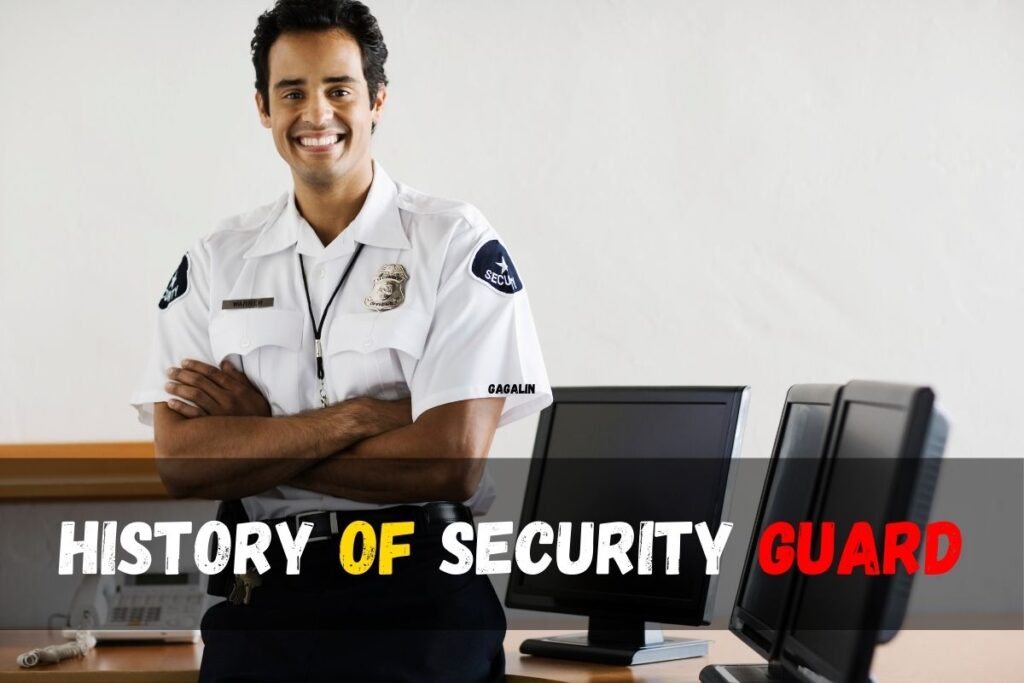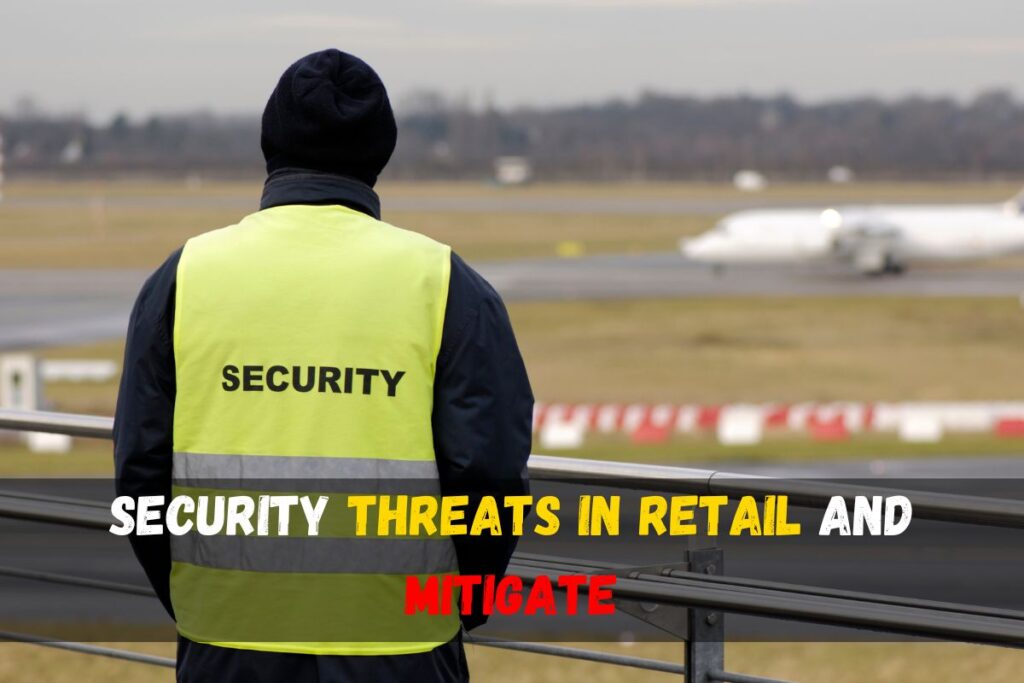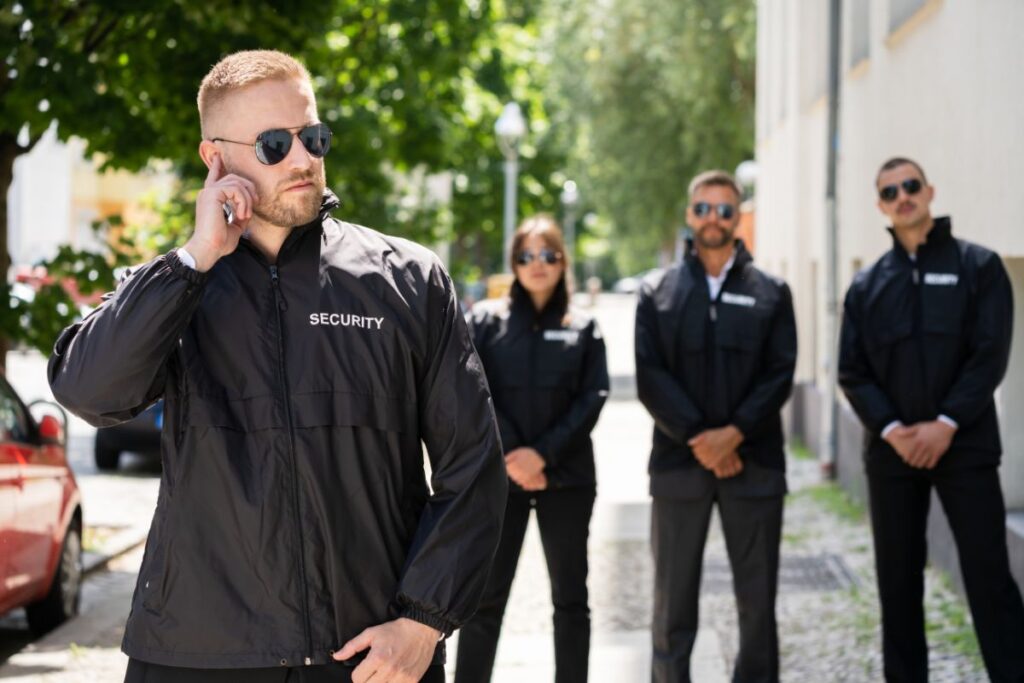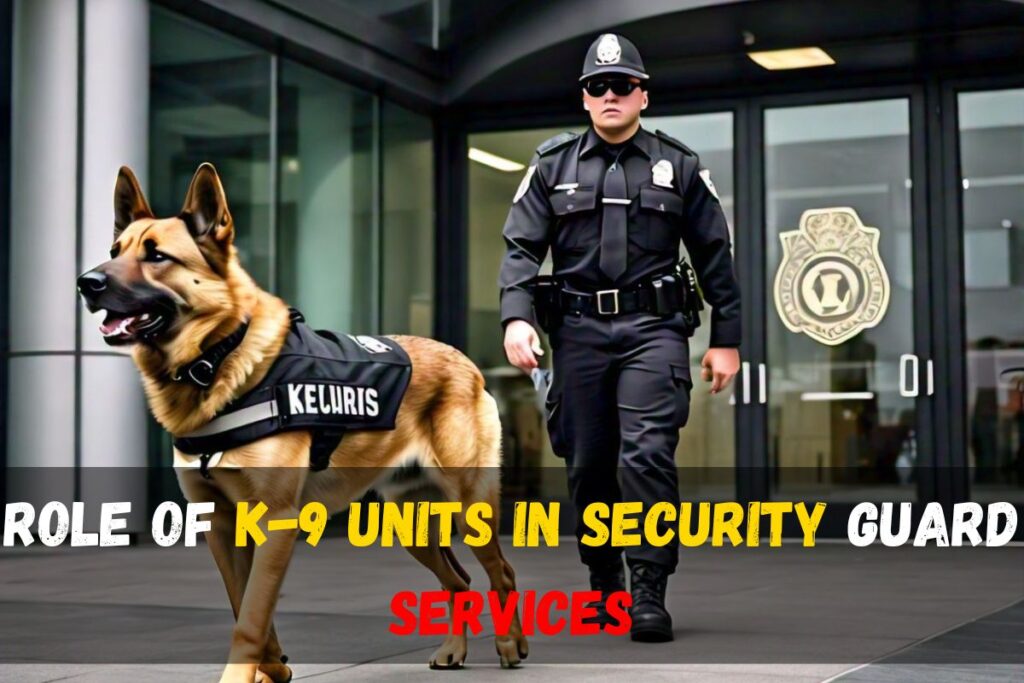Evolution of Security Guard Training & Certification in Australia

Evolution of Security Guard Training & Certification in Australia November 4, 2024 industry in Australia has evolved dramatically over the years, shaped by changing societal needs, heightened security threats, and advancements in technology. Today, Australian security guards undergo comprehensive training and certification to ensure they are prepared to meet the demands of modern security services. This article explores the development of security guard training in Australia, the certification requirements, the role of specialized training, and the future directions of this essential industry. The Early Days: Origins of Security Guard Services in Australia In its earliest form, the security industry in Australia was an unregulated field with minimal training standards. Security guards were largely tasked with maintaining order and preventing petty crimes, often without the rigorous training or licensing that is common today. However, as the nation’s cities grew and security needs became more complex, it became evident that the traditional approach to security was insufficient. The security guard role began to professionalize, with increasing demands for regulation and standardization. The introduction of mandatory certifications and structured training programs marked a turning point, laying the foundation for a modern, reliable security industry in Australia. This transition reflected a broader recognition of the importance of well-trained security personnel in safeguarding communities, businesses, and public spaces. For more insight into the current challenges faced by security guards, including crisis management and workplace violence, explore our guide on common challenges faced by security guards in Australia. Current Training Standards: What It Takes to Become a Security Guard in Australia Today, Australia maintains some of the world’s most stringent training standards for security guards. A comprehensive training framework ensures that guards possess the knowledge and skills necessary to perform their duties responsibly. Before a guard can be licensed, they must complete a Certificate II in Security Operations, which provides foundational training in legal knowledge, communication, and safety protocols. This certification covers various topics, including basic risk assessment, conflict resolution, and adherence to ethical standards. The training programs are designed to prepare guards for the real-world scenarios they will encounter on the job. The curriculum includes modules on Australian legal requirements, empowering guards with an understanding of privacy laws, trespass laws, and the responsibilities associated with their roles. Additionally, emphasis is placed on interpersonal skills, equipping guards with the communication skills necessary to handle conflict situations professionally. The detailed and rigorous training is a testament to Australia’s commitment to security quality, ensuring that guards are capable of maintaining order while upholding ethical standards. Certification and Licensing: A Step-by-Step Guide To operate as a licensed security guard in Australia, candidates must meet strict certification and licensing requirements. Once training is completed, aspiring guards apply for a license through the state’s regulatory body, which involves extensive background checks. These checks include criminal history assessments to determine the applicant’s suitability for a role that demands high integrity and trustworthiness. The licensing process varies slightly across states, with some states requiring additional qualifications, such as Certificate III in Security Operations for specific roles. This certification further enhances a guard’s skills, focusing on areas like emergency response and advanced surveillance techniques. Upon receiving their license, security guards must regularly renew it and complete refresher courses to stay updated on legal changes and best practices. The process reflects the Australian security industry’s focus on accountability and professionalism, ensuring that all active security guards meet a minimum standard of excellence. For those interested in establishing a security business and understanding the steps involved in hiring and training guards, refer to our guide on how to establish a security guard business in Australia. Specialized Training Programs: Going Beyond Basic Certification While the basic certification is sufficient for many entry-level security roles, guards who wish to specialize in areas like K-9 security, event security, or personal protection must undergo additional training. Specialized training programs offer a deeper dive into niche areas, preparing guards for complex roles that require unique skill sets. For example, K-9 units demand extensive training for both the handler and the canine. This training includes obedience exercises, threat detection, and agility drills to ensure that the K-9 unit is capable of handling various security situations effectively. Similarly, guards involved in event security undergo crowd management training, equipping them to manage large gatherings safely and respond swiftly to any disruptions. This type of specialized training is critical in ensuring that security guards can handle diverse scenarios and provide tailored services depending on the environment and client requirements. With specialized skills, these guards become invaluable assets to security teams, offering a level of expertise that enhances the effectiveness of security operations. To learn more about the unique contributions of K-9 units and their impact on security services, see our detailed article on the role of K-9 units in security guard services. The Role of Technology in Modern Security Training Technology plays a pivotal role in modern security training, enabling guards to gain experience in simulated environments before facing real-world scenarios. Many training providers incorporate tools like CCTV systems, alarm monitoring software, and virtual reality (VR) simulations into their curriculum. VR simulations, for instance, allow guards to practice response protocols in controlled settings, testing their ability to handle emergencies such as fire outbreaks, intruder situations, or crowd disturbances. The integration of these technologies into security training not only enhances guards’ skills but also improves their confidence when handling complex systems in their everyday roles. Furthermore, advancements in digital communication tools allow for remote training sessions, enabling guards to stay updated on the latest practices without needing to travel. Technology’s role in security training will likely continue to grow, particularly as new threats emerge, and the demand for efficient, tech-savvy guards rises. By embracing technology, the security industry in Australia is better equipped to meet the safety needs of a modern society. Future Trends in Security Guard Training and Certification As security threats evolve, so too must the training programs that prepare guards to face them. Emerging trends in the industry point towards a future
Top Security Threats in Australian Retail and How Guards Mitigate Them

Top Security Threats in Australian Retail and How Guards Mitigate Them November 1, 2024 In Australia’s bustling retail industry, security threats are diverse and ever-evolving. From everyday challenges like theft and vandalism to more sophisticated threats involving cybersecurity, retail businesses face risks that require both expertise and adaptability to manage. Experienced security guards play a crucial role in addressing these challenges, ensuring the safety of customers, staff, and assets. This article explores the top security threats in Australian retail and how professional security guards mitigate them effectively. Understanding the Scope of Security Threats in Retail Security threats in retail go beyond mere theft; they encompass various issues such as employee fraud, property damage, cyber threats, and violent confrontations. Each threat requires a tailored approach from guards who are trained to anticipate, recognize, and respond to incidents swiftly and professionally. Knowledge of different types of security guard services available in Australia can help business owners choose appropriate solutions to address these specific risks effectively. Shoplifting and Theft: A Persistent Retail Challenge Shoplifting is one of the most frequent issues retailers face, with incidents ranging from casual “grab-and-go” thefts to coordinated group theft. Security guards serve as a visible deterrent, which alone can reduce shoplifting attempts. They monitor high-risk areas and are trained to recognize suspicious behaviors, acting discreetly to prevent escalation. Guards also collaborate with store employees to identify common shoplifting tactics, providing continuous training to staff on effective theft prevention. How to Establish a Security Guard Business in Australia offers insights for those interested in exploring security services as a business solution for retail security challenges. Managing Employee Theft and Internal Fraud Employee theft can be particularly damaging to retailers, as it often goes undetected for extended periods. This type of theft can take many forms, from unauthorized discounts to outright cash skimming. Security guards help mitigate this risk by performing regular inventory checks, monitoring sensitive areas like stockrooms, and assisting in enforcing strict access controls. Their presence discourages dishonest behaviors and fosters a culture of accountability. Guards also collaborate with management to implement reporting systems that allow other employees to safely report suspicious activities, thereby creating a secure and ethical work environment. Addressing Vandalism and Property Damage Vandalism, particularly in high-traffic or high-risk areas, is a significant concern for Australian retailers. Whether it involves graffiti, broken windows, or tampering with store property, vandalism harms both a store’s image and its finances. Security guards patrol the premises regularly, monitor surveillance feeds, and report any signs of vandalism or trespassing. They are also trained to respond quickly to vandals, minimizing property damage through their prompt action. By addressing vandalism proactively, guards help retailers maintain a professional appearance and minimize unnecessary repair costs. Robbery and Violent Incidents: Ensuring Safety in High-Risk Situations Robberies pose a serious threat to retail businesses, as they often involve aggressive and potentially dangerous confrontations. Security guards are trained in de-escalation techniques, which enable them to handle tense situations calmly and reduce the risk of harm. In a robbery scenario, guards are prepared to assist with evacuation, provide immediate support to affected individuals, and secure the scene until law enforcement arrives. Their quick, measured response ensures the safety of both employees and customers, while also protecting assets from theft or damage. To further understand how guards handle high-stakes situations, the responsibilities of security guards in Australia offers an overview of the training and protocols guards follow. Cybersecurity Threats and Digital Fraud in Retail With the rapid digitization of retail, cyber threats have become a growing concern. Hackers may attempt to access sensitive customer information, compromising both privacy and trust. While cybersecurity primarily falls under the domain of IT, security guards play a supporting role by enforcing physical security measures that limit unauthorized access to sensitive areas, such as server rooms. Guards also help monitor for any suspicious behavior from employees or visitors who may have access to digital systems. This holistic approach, combining IT security with physical security protocols, significantly reduces the risk of digital fraud and data breaches. Counterfeit Money and Fraudulent Transactions Counterfeit money and credit card fraud represent another ongoing challenge for retailers, leading to substantial financial losses. Security guards are trained to identify counterfeit currency and fraudulent behaviors, closely observing customer interactions at the point of sale. Their expertise allows them to quickly spot inconsistencies, helping to prevent the acceptance of counterfeit money or stolen cards. In cases of repeated fraud attempts, guards often collaborate with law enforcement to create a preventative action plan, which includes alerting nearby businesses to emerging fraud patterns and ensuring heightened vigilance during high-traffic periods. Crowd Management During Sales and Promotional Events Sales events attract large crowds, which increases the risk of shoplifting, altercations, and accidents. Security guards play an essential role in maintaining order by directing customer flow and preventing overcrowding. They manage entry and exit points and provide assistance during emergencies, ensuring that customers feel safe throughout the shopping experience. Trained in crowd control techniques, guards respond quickly to any disputes or hazards, creating a safer environment even during peak shopping hours. The Role of K-9 Units in Security Guard Services can be beneficial in large events, where these specialized units assist guards in deterring crime and enhancing safety. Handling Suspicious Packages and Safety Risks Suspicious packages can present a significant threat to retail environments, especially with the increasing frequency of threats in urban areas. Security guards receive specialized training on identifying and handling suspicious packages, ensuring they manage the situation carefully without causing alarm. They are skilled at isolating areas if necessary and coordinating with bomb disposal experts if a real threat is detected. Their expertise in recognizing and dealing with potentially dangerous situations safeguards customers and staff alike. For more insights, refer to How Security Guards Handle Suspicious Packages: A Comprehensive Guide, which provides a step-by-step approach to threat management. Ensuring Health and Safety Compliance in Retail Environments Security guards are often tasked with upholding health and safety standards in the retail environment. They
How to Establish a Security Guard Business in Australia

How to Establish a Security Guard Business in Australia October 28, 2024 Starting a security guard business in Australia is a venture that can bring both financial success and the satisfaction of providing essential protection to clients. Given the increasing demand for safety and security, this industry offers ample opportunities for growth. This guide will take you through each step in establishing a successful security guard business, covering everything from market research to compliance and marketing. How to become a security guard in Australia? 1. Conducting In-Depth Market Research to Identify Your Niche and Client Needs Before diving into the security industry, it’s crucial to conduct comprehensive market research to understand the current landscape and identify your ideal niche. Begin by examining local and national demand for various types of security services, such as event security, retail and loss prevention, corporate security, and residential patrol services. Australia has diverse security needs across these sectors, and targeting a specific niche helps position your business effectively in the market. Use surveys, competitor analysis, and interviews with potential clients to gather data on gaps in existing services. Additionally, analyzing industry reports and government data on security trends will provide valuable insights that can shape your business strategy. 2. Crafting a Comprehensive Business Plan That Defines Your Goals and Financial Strategy A well-structured business plan is foundational to launching and sustaining a security guard business. Start by outlining your company’s mission, vision, and core values, as these will guide your brand identity and help differentiate you from competitors. Include a detailed description of the services you plan to offer, your target market, and a unique value proposition. Next, address your financial projections, estimating startup costs, expected revenue, and profitability timelines. Your plan should also include an analysis of operational costs such as training, equipment, insurance, and employee wages. A comprehensive business plan not only provides a roadmap for your business but also positions you to secure funding or attract potential investors. 3. Meeting Legal and Licensing Requirements for Security Companies in Australia Starting a security guard business requires strict adherence to Australia’s regulatory and licensing requirements. In each state or territory, you must apply for a Private Security Business Licence, which validates your company’s qualifications to provide security services. You will also need an Australian Business Number (ABN) and to register your business with the Australian Business Register. Additionally, each security officer you employ must complete accredited training, like the Certificate II or III in Security Operations, and hold individual security licences. Regularly review these requirements as state regulations may vary, and staying compliant ensures you avoid legal issues and maintains your business’s reputation. 4. Obtaining Certifications and Ensuring Staff Training Standards Are Met Certifications are a hallmark of professionalism and are essential in the security industry. To build a reputable team, ensure all employees complete government-approved training programs. Start with basic certifications such as Certificate II or III in Security Operations, which covers essential skills like risk management, emergency response, and first aid. Offering advanced training in conflict resolution, crowd control, and surveillance enhances your team’s abilities and increases the value you provide to clients. Regular skill updates and annual compliance checks will keep your staff prepared for changing security demands and maintain high service standards across your operations. 5. Securing Comprehensive Insurance Coverage to Protect Your Business and Staff Insurance is indispensable in the security industry, where risks are a daily reality. As a business owner, securing public liability insurance protects you from potential claims of property damage or personal injury involving your services. Additionally, workers’ compensation insurance is legally required in most Australian states and covers any injuries your employees may sustain on duty. Explore specialized insurance products designed for security businesses that can cover liability for incidents related to property protection, surveillance, and crowd management. Proper insurance coverage not only safeguards your finances but also reinforces your commitment to a responsible and safe work environment. 6. Hiring Qualified Security Personnel and Building a Trustworthy Team The quality and professionalism of your staff play a significant role in the success of your security guard business. When hiring, prioritize individuals with relevant experience, proper certifications, and a clean background check. Implement a thorough recruitment process that assesses candidates’ interpersonal skills, physical fitness, and crisis management capabilities. Once hired, provide continuous training to refine skills in areas like communication, observation, and conflict de-escalation. Building a team of reliable and well-trained guards will set your business apart and instill confidence in clients who rely on you for their safety needs. 7. Providing Essential Equipment and Uniforms to Enhance Professionalism and Efficiency Equipping your staff with the right tools is essential for providing effective security services. Your business should invest in two-way radios, body cameras, flashlights, and other tools necessary for communication and documentation. Equally important is providing standardized uniforms that create a professional appearance and make guards easily identifiable. Consider additional technology such as incident-reporting software, GPS tracking for patrols, and surveillance systems to enhance operational efficiency. High-quality equipment not only ensures safety for both guards and clients but also adds to your agency’s credibility and professionalism. 8. Setting Up a Sound Financial System and Determining Service Pricing Establishing a solid financial structure is key to managing expenses and ensuring profitability. Open a dedicated business bank account to keep personal and business finances separate, which simplifies tax filings and improves expense tracking. Implement reliable accounting software to monitor income, track expenses, and maintain cash flow. When setting prices, research competitors to understand industry-standard rates and balance them with your service value. Offering a mix of hourly rates, daily rates, and annual contracts can attract diverse clients while allowing flexibility in meeting their specific needs. 9. Building a Professional Website and Establishing a Digital Presence A well-designed website is essential for establishing credibility and attracting clients. Your website should clearly outline your services, credentials, client testimonials, and contact information. Implement SEO best practices by optimizing for keywords like “security guard services Australia” to improve
The Role of K-9 Units in Security Guard Services

The Role of K-9 Units in Security Guard Services October 9, 2024 The use of dogs for security dates back to ancient times, with civilizations such as the Egyptians, Greeks, and Romans utilizing canines as protectors and sentinels. These early roles laid the foundation for the modern use of K-9 units. In military contexts, dogs have long been valued for their loyalty and exceptional sensory abilities. It was during World War I and II that dogs became more formally integrated into military operations, where they were used for sentry duty, tracking, and delivering messages. As military successes grew, K-9 units transitioned to civilian security roles. By the mid-20th century, police forces worldwide began incorporating K-9s into their crime prevention and law enforcement strategies. Key milestones in their integration into private security occurred when large-scale industries, airports, and government agencies realized the value of trained dogs in detecting threats like explosives, narcotics, and unauthorized intrusions. Today, K-9 units are integral to modern private security services, providing a reliable, non-lethal method of threat detection and prevention. How Security Guards Handle Suspicious Packages Why K-9 Units Are Effective in Security K-9 units stand out in security operations because of their unmatched sensory capabilities and agility. Dogs possess a sense of smell that is 10,000 to 100,000 times more acute than humans, enabling them to detect substances like drugs and explosives with remarkable accuracy. Additionally, their hearing is far superior, allowing them to detect movements and sounds beyond human range, such as the approach of intruders or distant disturbances. These natural abilities give K-9 units a distinct advantage over human security guards, particularly in high-risk areas like airports, warehouses, and government buildings. While humans rely on technology such as cameras and alarms, dogs can act as both a deterrent and a first response, immediately identifying and reacting to potential threats. This dual functionality—detection and deterrence—makes K-9 units highly effective. In fact, the visible presence of a K-9 unit often discourages criminal activity, making them a vital part of maintaining order in sensitive environments. Types of K-9 Units in Security K-9 units are not a one-size-fits-all solution; there are specialized types, each tailored to specific security tasks: Role of Security Guards in Airport Security Training of K-9 Units Training K-9 units is an intensive and continuous process, requiring both obedience and specialized skill development. The training typically begins with basic obedience, ensuring that the dogs respond to commands without hesitation, even in high-stress environments. This is followed by agility training, where dogs learn to navigate complex environments, from urban settings to natural terrains. A significant part of K-9 training involves scent detection, where dogs are taught to identify specific odors such as explosives, drugs, or firearms. This training is often customized to the environment in which the dog will work, such as airports or commercial buildings. Bite work, a critical component of patrol dog training, ensures that K-9s can subdue suspects effectively without causing unnecessary harm. Common Challenges Faced by Security Guards in Australia K-9 units undergo regular re-training and continuous assessments to maintain their operational readiness. Both the dog and its handler are required to stay up to date with the latest techniques, ensuring they work seamlessly together. Certifications and legal requirements vary by region but are essential to ensuring that K-9 units meet the rigorous standards needed for security operations. Role of K-9 Handlers The success of a K-9 unit depends not only on the dog but also on its handler. The relationship between the two is built on trust, communication, and mutual understanding. A handler must possess a deep understanding of canine behavior, as well as the ability to interpret the signals their dog is giving them. Handlers play a crucial role in guiding K-9s during operations, ensuring that they respond to commands and make appropriate decisions in real-time. In addition to being trainers, handlers are responsible for the care and well-being of their dogs, providing regular exercise, grooming, and medical attention to keep the K-9 in peak condition. K-9 handlers must undergo specialized training to work with their dogs effectively. This training includes learning how to handle stressful situations, how to interpret the dog’s signals, and how to communicate clearly with their K-9 partner. Certification is typically required to ensure that both the handler and the dog can work together safely and effectively in high-pressure environments. Technological Integration in K-9 Security The integration of modern technology into K-9 security operations has revolutionized the field, enhancing both the efficiency and safety of K-9 units. Tools like GPS tracking devices and body cameras allow handlers to monitor their dogs in real-time, improving situational awareness during security patrols. GPS tracking, in particular, ensures that handlers can locate their K-9s at any time, which is critical in large or high-risk areas. Body cameras attached to K-9s can provide live video feeds, giving security teams an immediate visual of a dog’s location or the presence of intruders. In addition, biometric sensors are increasingly used to monitor the dog’s vital signs, ensuring that they are operating within safe parameters during extended patrols or high-stress situations. Looking forward, artificial intelligence (AI) and data analytics are expected to further enhance K-9 operations. AI could assist in analyzing scent patterns, alerting handlers to unusual behavior, or identifying emerging threats more quickly. These technologies will not replace K-9s but will augment their abilities, allowing for more sophisticated and responsive security operations. Challenges in Managing K-9 Units Despite their many benefits, managing K-9 units comes with its own set of challenges. The cost of training and maintaining a K-9 unit is substantial, as is the time investment required to train both the dog and its handler. K-9s also require continuous care, including specialized diets, regular veterinary visits, and housing. There are also potential risks involved, including the possibility of a K-9 injuring a suspect or bystander, even if unintentional. Misuse of K-9s, such as deploying them inappropriately in non-threatening situations, can also lead to negative public perception. Addressing these risks requires


